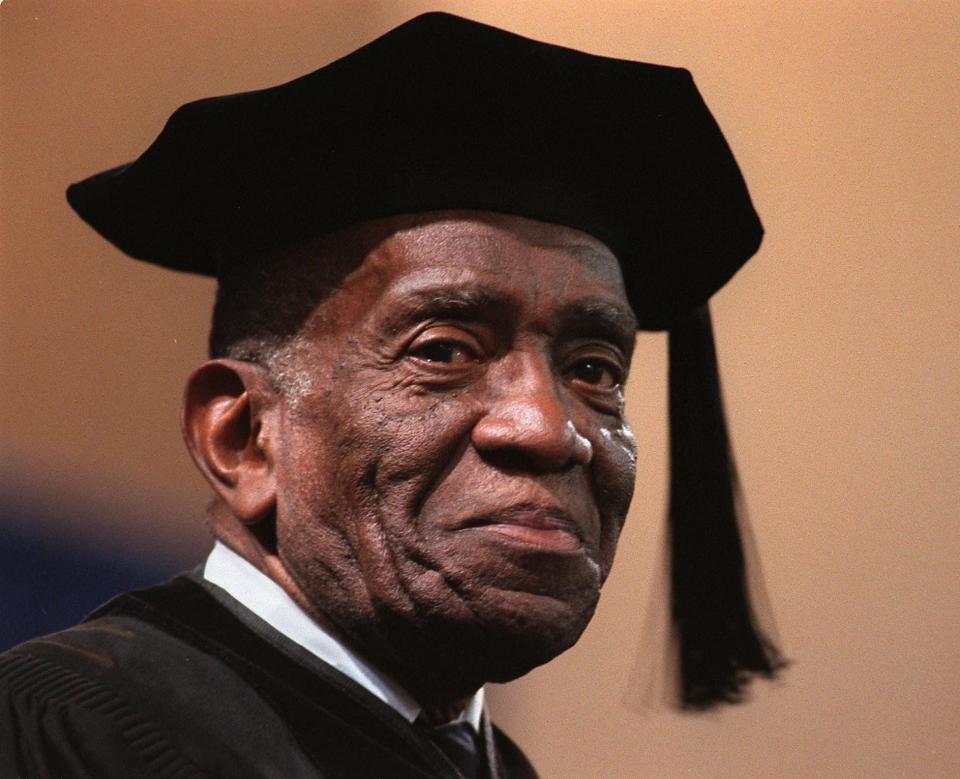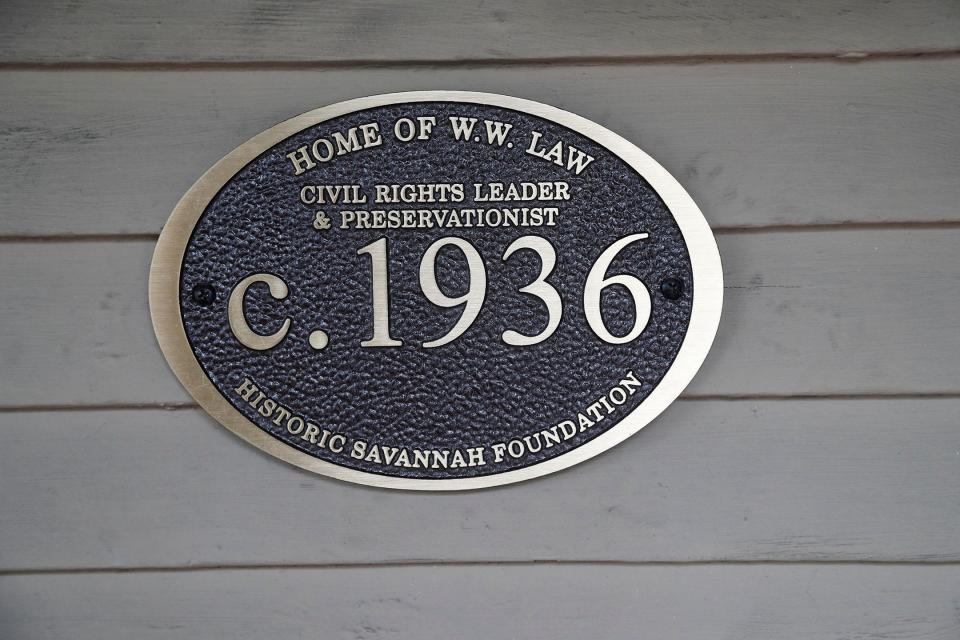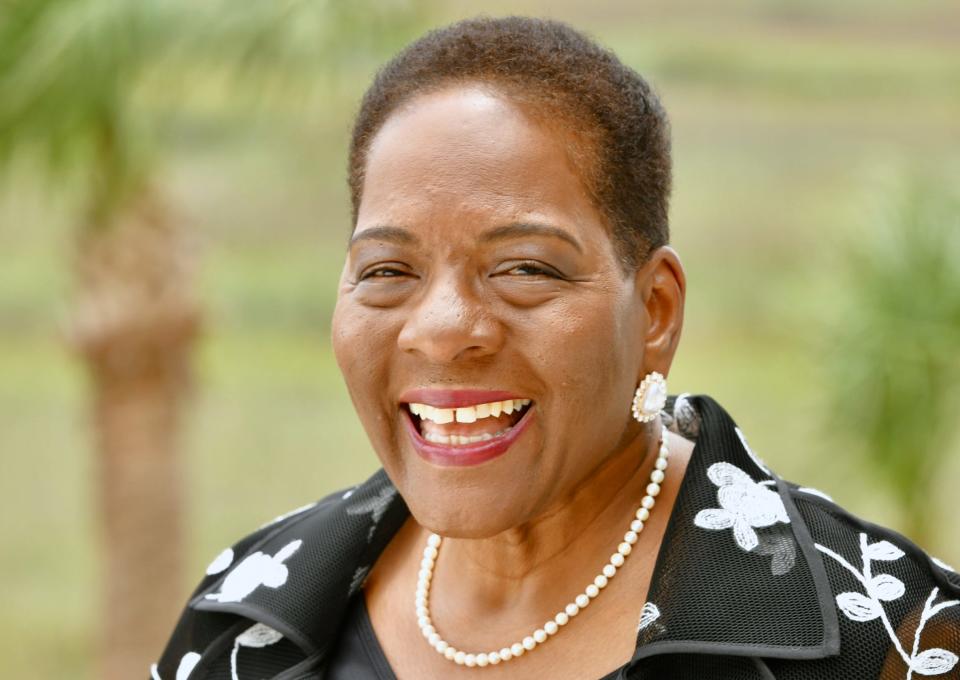Happy birthday, W.W. Law. Savannah civil rights icon would have turned 100 on New Year's Day
This is a column by Wanda Lloyd, a retired newspaper editor and author of the memoir “COMING FULL CIRCLE: From Jim Crow to Journalism.”
Many who live in Savannah have likely noticed the house on West Victory Drive in the Cuyler-Brownsville District where civil rights leader, historic preservationist and postal worker Westley Wallace “W.W.” Law lived from the 1950s until his death in 2002. A commemorative plaque was installed on the restored home in August.
My family and I knew Mr. Law. As a child living in what’s now known as Cuyler-Brownsville, Mr. Law delivered mail to our neighborhood, including to our house on West 41st Street. When I was a journalist at The Washington Post years later, I returned to Savannah in May 1979 and interviewed him for a story about the “Negro Heritage Trail,” a walking tour of the city from the African American perspective. The story ran on wire services and was published in newspapers around the world.
Read the Washington Post story:Savannah's Negro Heritage Trail
Mr. Law later turned what he gave me as a personal walking tour into a van-driven tour, with others driving since he never owned or drove a vehicle himself. How fitting it is that 100 years after Mr. Law’s birth on Jan. 1, 1923, a local celebration will take place on Jan. 5 to honor the man often referred to as “Mr. Civil Rights” who was born on the same day we celebrate the Emancipation Proclamation, which President Abraham Lincoln signed in 1963 declaring the legal end of slavery.

Mr. Law served as president of the NAACP Savannah branch from 1950 to 1976, leading the city through many events during the civil rights movement. Under his leadership and with alliances from others in the community, the local NAACP was instrumental in peacefully desegregating schools. He led weekly civil rights mass meetings in Savannah churches, and he taught and advocated for nonviolent protests.
Through his leadership of sit-ins, lunch counters and restaurants on Broughton Street were desegregated. One of them was the regal Azalea Room in Levy’s Department Store (the building that now houses the SCAD library). As a child, whenever my grandmother and I would go shopping at Levy’s, I recall being attracted by the delicious scents coming from the restaurant, and then I felt the firm grip of my grandmother’s hand leading me away, never admitting to me that we weren't allowed to sit and order food because of the color of our skin. Law and his team of civil rights leaders changed all of that.
Law led the wade-ins at Savannah Beach (now Tybee Island) through the NAACP Youth Council, and he consistently navigated the white community to help unify the movement that peacefully changed so much about Savannah without the civil unrest in cities like Little Rock, Birmingham, Oxford and Selma. In fact, Mr. Law opposed alternative methods espoused by others who worked locally in civil rights, methods that could have resulted in violent attacks. He held a steady grip on nonviolent social change.

In 1961, when Mr. Law lost his job as a federal employee because of his civil rights advocacy, support from President John. F. Kennedy and other NAACP leaders brought attention to his plight, and an appeals board reinstated him as a postal worker.
The House on West Victory Drive, the W.W. Law Community Center and the W.W. Law Branch Library, both on East Bolton Street, and most of all the W.W. Law Collection on Martin Luther King Boulevard – all of these are tributes to a man who did so much to change the way of life for African Americans in Savannah and in cities beyond.

On Jan. 5 beginning at 11:30 a.m., a stellar panel of foot soldiers who worked with and were mentored by Mr. Law will share personal stories in a luncheon event open to the public at The Learning Center at Senior Citizens, Inc., in partnership with the Savannah Yamacraw branch of ASALH (Association for the Study of African American Life and History).
Former mayors Otis Johnson and Edna B. Jackson and civil rights icon Carolyn Blackshear will reflect on “100 Years of Influence: The Life of W.W. Law.” I have the honor of moderating this conversation, which Learning Center Director Roger Smith says he expects will be an “historic event in Savannah.” The discussion will be followed by a presentation of treasures from the W.W. Law Collection, led by Luciana Spracher, director of city archives.
Savannah historian Charles Elmore once wrote that W.W. Law was a “crusader for justice.” The goal of the Jan. 5 event will be to dissect Law’s work for social justice and unity, and encourage thoughtful future discussions about how to make this crusader’s legacy count in Savannah for generations to come.
For more information and registration for lunch ($20) for how to attend “100 Years of Influence,” call 912-236-0363, or visit seniorcitizensinc.org/events.
This article originally appeared on Savannah Morning News: Savannah civil rights icon WW Law 100th birthday is New Year's Day

